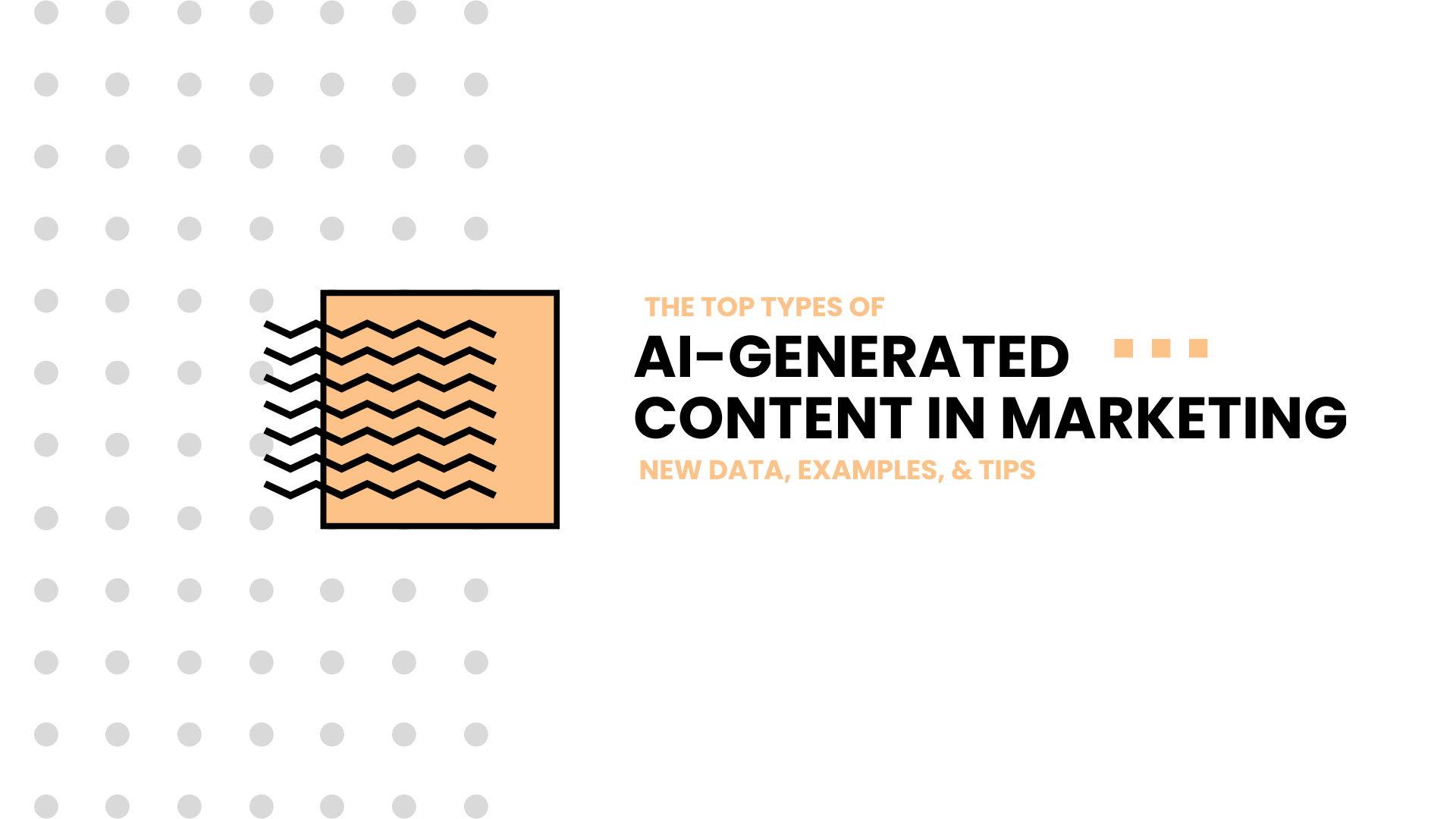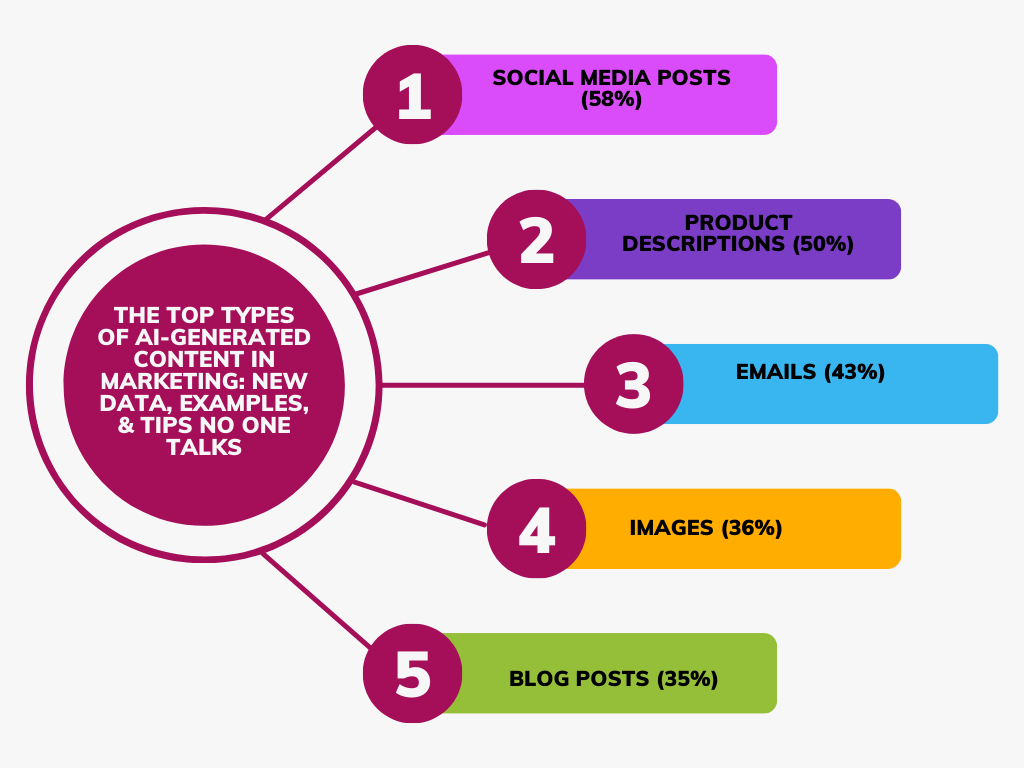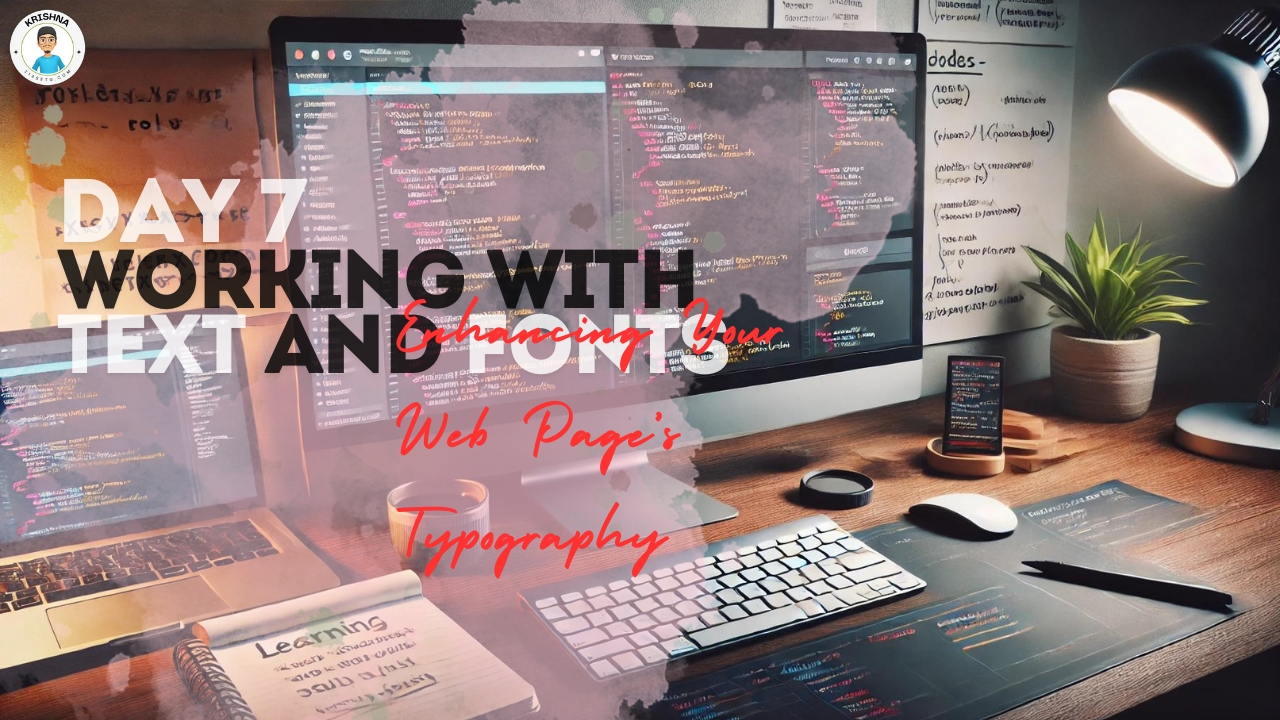
In the fast-evolving landscape of digital marketing, AI-generated content has emerged as a game-changer, revolutionizing how brands create and distribute content. With its ability to streamline content creation, personalize customer experiences, and analyze data at scale, AI is reshaping the marketing world. Here’s a deep dive into the top types of AI-generated content in marketing today, backed by the latest data, enriched with examples, and packed with actionable tips.
Top Types of AI-Generated Content in Marketing

1. Social Media Posts (58%)
New Data: A whopping 58% of marketers are now using AI to craft compelling social media content that engages audiences.
Examples: From generating catchy tweets to curating personalized Instagram stories, AI tools are capable of producing content that resonates with a brand’s target audience, often incorporating trending hashtags and topics for maximum reach.
Tips: Leverage AI to analyze trending topics and audience preferences to create posts that spark engagement. Remember, the key is personalization; use AI to tailor your messages to different segments of your audience.
2. Product Descriptions (50%)
New Data: Half of the marketers surveyed are tapping into AI’s potential to create vivid and persuasive product descriptions.
Examples: E-commerce giants like Amazon use AI to generate dynamic product descriptions that highlight key features and benefits tailored to the shopper’s search behavior and previous interactions.
Tips: Use AI to craft product descriptions that not only describe but also sell. Incorporate SEO keywords seamlessly and ensure each description is unique to avoid duplicate content issues.
3. Emails (43%)
New Data: 43% of marketers harness AI to personalize email content, from subject lines to body text, boosting open rates and conversions.
Examples: Platforms like Mailchimp use AI to optimize subject lines, while tools like Persado utilize language AI to craft content that resonates on a personal level with subscribers.
Tips: Segment your email list and use AI to customize messages according to subscriber behavior, preferences, and purchase history. Test different versions to see what works best.
4. Images (36%)
New Data: 36% of marketers now rely on AI to create visually stunning and relevant images for their content.
Examples: Tools like Canva’s Magic Write feature and DALL-E can generate unique images and designs based on textual descriptions, providing custom visuals for various campaigns.
Tips: Use AI-generated images to complement your text content, ensuring they align with your brand’s visual identity. Always test different images to gauge audience response.
5. Blog Posts (35%)
New Data: Blog content creation is being revolutionized with 35% of marketers using AI to draft informative and engaging posts.
Examples: AI writing assistants can help generate blog post outlines, suggest headings, and even write entire sections of content, significantly speeding up the content creation process.
Tips: While AI can jumpstart the writing process, always infuse your blog posts with a personal touch and expertise. Use AI for research and drafting, but ensure the final piece reflects your brand’s voice and values.
6. Landing Pages (19%)
New Data: 19% of marketers are employing AI to design and optimize landing pages, enhancing user experience and conversion rates.
Examples: AI can test different elements of a landing page in real-time, adjusting layouts, colors, and call-to-action buttons to improve performance.
Tips: Utilize AI for A/B testing different versions of your landing pages. Pay close attention to analytics to understand what changes lead to better conversion rates.
7. Ebooks (17%)
New Data: Ebooks are being crafted with the help of AI by 17% of marketers, enabling them to produce comprehensive guides and reports more efficiently.
Examples: AI tools can assist in researching, outlining, and even writing sections of ebooks, especially data-driven content that requires extensive compilation and analysis.
Tips: Use AI to handle the heavy lifting of data collection and initial drafting. Collaborate with experts to ensure the content is accurate, engaging, and valuable to your readers.
8. Whitepapers (12%)
New Data: A smaller but significant portion of marketers (12%) are leveraging AI to develop in-depth whitepapers, streamlining the research and writing process.
Examples: AI’s ability to digest large volumes of data can be particularly useful in creating whitepapers that require detailed analysis and presentation of findings.
Tips: While AI can aid in drafting and data analysis, ensure that the final whitepaper is thoroughly reviewed and refined by experts to maintain credibility and authority.
Using AI Wisely for Your Marketing Content
As we delve into the age of AI-generated content, the key to success lies in strategic integration. Use AI to enhance creativity, efficiency, and personalization, but always pair it with a human touch to ensure authenticity and emotional connection. By leveraging the strengths of AI in tandem with human insight and expertise, marketers can create compelling, personalized, and effective content strategies that resonate deeply with their audience.

